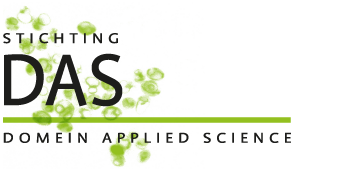The National Consultative Committee of Applied Science Professional Field Advisory Committees has reviewed and approved (or: validated) the profile description of the Applied Science domain, which is available on this website. Moreover, representatives from the professional field play an important part in keeping this profile description up-to-date.
If and when representatives from the professional field discern new developments in professional practice, they can convey that to regional professional field committees, among other things: these are committees who offer advice to individual programmes, including regarding their curricula. Also, professors at HBO programmes in the Applied Science domain are already working together closely with professionals from the regional corporate environment and regional knowledge institutions. As a result, the programmes are able to react quickly to new trends and knowledge and adjust their curricula accordingly.
Key role
New developments are also the subject of discussion in the National Consultative Committee of Applied Science Professional Field Advisory Committees. All regional professional field committees have one or two representatives in that committee. This national professional field committee, whose members cover the full domain, makes the connection between regional trends in the professional field and the Applied Science domain’s national profile description. The committee members are able to see across the boundaries of the individual programmes and universities of applied science and to keep track of trends within the industry. On of the tasks of this consultative group is to offer advice regarding possible updates of the profile description to the National Educational Committees (Landelijke Opleidingsoverleggen) and the DAS Board.
In other words, the Applied Science domain profile description is a dynamic document that clearly reflects the voice of the professional field.
Useful input
Additionally, the professional field played a big part in the creation of the Applied Science domain profile description set-up, a first draft version of which was published in 2008. For example, the competences and action indicators were first described for professionals with five years of work experience. Later on, intermediate levels were added at the request of the National Professional Field Committee. This offered the professional field the opportunity to gain more of a view on students’ capabilities at the time of their graduation.
Additionally, employers were looking for more clarity about the knowledge instilled on the students. To achieve this, they made the suggestion of issuing an illustrative literature list to provide an estimate of the level of the programme materials. You can find this in the Body of Knowledge & Skills (BoKs). The professional field was also consulted regarding the set-up of its contents.
The professional field also approves of the choice of reflecting all eight competences in the competence profile, even if they are not all part of the curriculum or if students only finish a competence at level 1. That is because the programmes and the professional field share the opinion that the set of competences accurately reflects the breadth of the domain. It also offers the universities room to offer various specialisations for various professional positions within the domain.
If a competence is finished at level 1, it will not contribute to the attainment of the HBA bachelor level, but such competences can be useful nevertheless. This particularly involves less subject-specific skills that provide students with a solid basis for further development as solid professionals in professional practice, even if students start working in a different professional domain than the one the programme primarily trains them for. For example, consider advisory and instructional skills. Students may also choose to pursue a higher level than the required minimum for the programme in question, for example during their internship or through a minor for such less subject-specific competences, such as project-based work.
National Consultative Committee of Professional Field Advisory Committees keyboard_arrow_down
The National Consultative Committee of Professional Field Advisory Committees (Werkveldadviescommissies or WAC) consists of representatives from the regional professional field advisory committees of the universities of applied science participating in DAS. The representatives from the professional field are able to see across the boundaries of the individual programme and university of applied science, and to keep track of trends within the industry.
